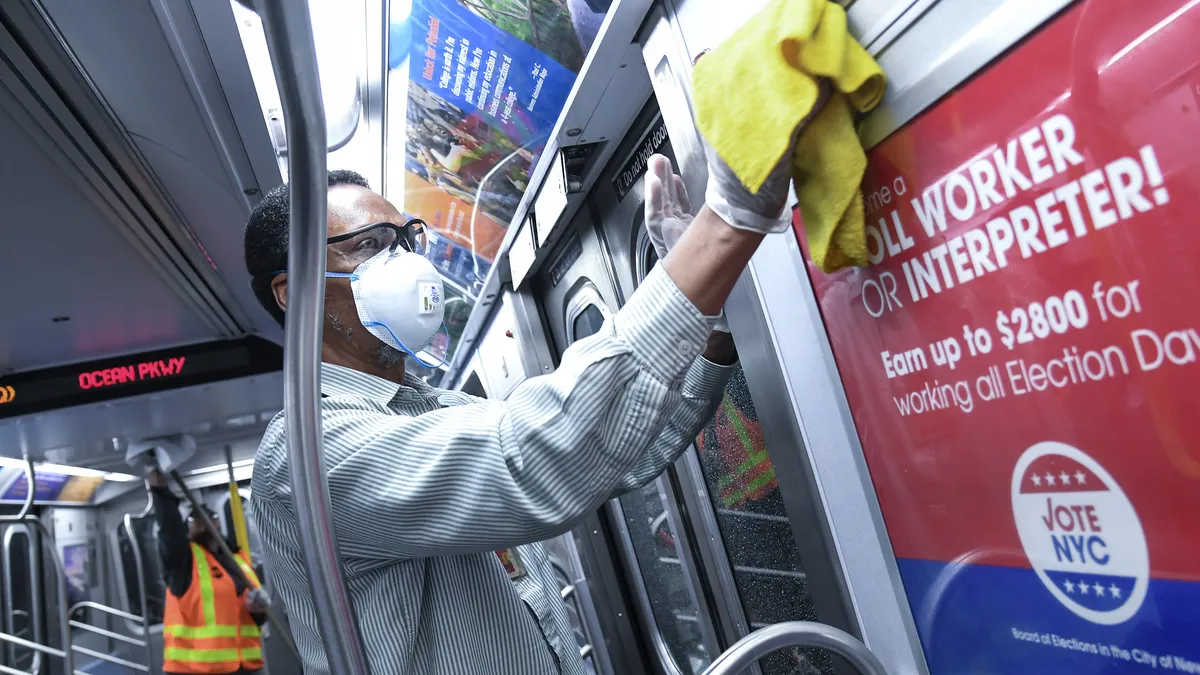Dive Brief:
- Fifty-seven percent of U.S. adults believe their state and local governments are reopening nonessential businesses too soon, according to new survey results from ICF and MFour Mobile Research. The survey, conducted May 18-21, is the third in a series of surveys of about 1,000 U.S. adults regarding attitudes towards and perceptions of the new coronavirus disease (COVID-19).
- Many of those surveyed said they won't revisit some staples of city life until they feel safe, including using the bus or subway (46%); gyms (44%); ride-sharing services (42%); or sit-down restaurants (40%).
- Thirty percent of adults expressed "little or no confidence" in the information they receive from state governments about COVID-19, compared to 22% in March. And 49% of those surveyed said they have little or no confidence in the information they receive from the federal government, compared to 38% in March.
Dive Insight:
Despite the general lack of confidence in governments, the survey revealed that over four in five adults have a "great deal of confidence" or a "fair amount of confidence" in scientists to make recovery decisions in the best interest of U.S. residents.
Respondents also expressed a fair amount of optimism about their future employment and financial opportunities. A majority (53%) of adults believe they will maintain the same financial status now compared to a year from now. And six out of ten working adults who lost a job due to the pandemic believe that within the next three months, they will either find a better job, work more hours or receive higher pay.
However, while overall concern about the coronavirus is declining, many (53%) "still think the worst is yet to come," according to the survey results.
The declining level of trust among U.S. residents for information shared by the government could point to an area of concern for local leaders, according to ICF Project Director of Survey Results Thomas Brassell. Maintaining trust is critical for various reasons, especially as it's an indicator of an individual's likelihood to receive a COVID-19 vaccine, Brassell said.
Understanding individual attitudes around vaccines will be critical for city and local government leadership in the coronavirus recovery process. More than one-third of U.S. adults said in the survey that it's not likely they will receive a FDA-approved vaccine for the coronavirus once it's available. To potentially encourage residents to receive vaccinations once available, city leaders could look to trusted public health officials to share information.
They could also look to cities like Revere, MA that have applied lessons from the opioid crisis to disseminate information during the pandemic in a trustworthy way. Mayor Brian Arrigo's administration tapped new technology with Soofa to develop "neighborhood news feeds" to directly connect with residents, adding digital signs in neighborhoods that include community news for residents to read when they walk past. Meanwhile, cities like Omaha, NE have seen residents pick up the slack in COVID-19 communications.
To keep up with all of our coverage on how the new coronavirus is impacting U.S. cities, visit our daily tracker.












